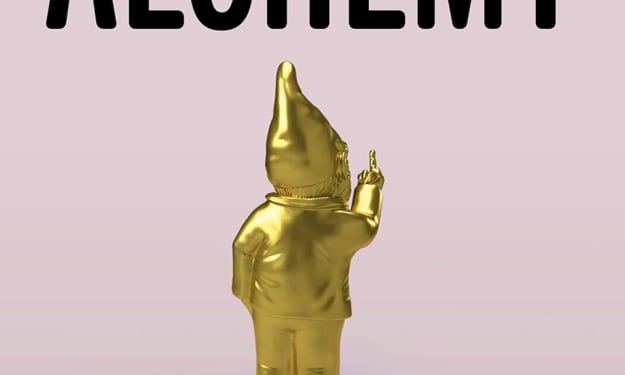One Edit in Ozu's 'Tokyo Story' Tells You all You Need to Know
Film language is an obsession of mine and I was rewarded while watching Tokyo Story with a perfect example of great film language.

It’s a very simple, basic notion of transition in film. And yet, it’s still quite brilliant when you think about it. I’m talking about one edit in the 1953 movie, Tokyo Story by director Yasujiro Ozu. The edit comes at approximately 6 minutes and 40 seconds into the film. In the scene prior to the edit, an elderly Japanese couple is packing bags that they will take with them when they travel to see their grown children in the big city. The scene is gentle and pleasant, beautifully underscored by Takanobu Saito’s elegant score.
There is not a lot of exposition dialogue, just enough to tell us that the couple is traveling via train to see their kids. Visually however, Ozu tells us more than you might realize. The elderly couple is dressed traditionally, their home is spare and rustic. There is a serene atmosphere surrounding the home. The doddering couple are sweet together, you can sense their bond and, through how they interact with each other, you get a sense of people who have spent long lives together.

A neighbor drops by and telling her what is happening functions as telling us what is happening. We learn that the children are successful and the parents are very proud. Subtly, we also get the sense that the kids don’t know that mom and dad are coming for a visit. Something in the way the father mentions, hoping that the kids are happy to see them gives away that this is more mom and dad’s idea than it was a plan among the family.
About the cut, Ozu has a choice to make. Do we follow mom and dad to the train? Watch them board the train? Watch a younger, college aged child see them off? Or is there another, quicker and perhaps more precise way for the director to tell us that the parents are off on their journey and have even already arrived in the big city where their children now reside? Indeed there is a faster, visual and aural way to communicate that we are in a completely different location.

Smoke stacks. Black smoke belching into the sky, smoke stacks. With little warning, in fact, rather jarringly, Ozu cuts from the peaceful home of the parents to smoke stacks. On the soundtrack we hear a train whistle and the rumble of the wheels on the tracks. Without having to see every step of the journey, Ozu has told us what we need to know with the sight of an urban landscape, a symbol of the industrial age, and the sound of a train.
Filmmaking magic has transported us from one location to another and if, unlike me, you didn’t stop to write an essay about it, you’d likely not even notice. That’s magic my friend. That’s what makes movies so special. Ozu honors your intelligence, your ability to reason, your acute senses that process visual information every day without stopping to notice that you did it. Ozu has faith that you will see the smoke stacks and hear the sound of the train and the sight of the station and understand that the parents have made their journey, they’ve arrived at their destination and the story will continue.

If you’ve ever wondered why you didn’t like a movie but you can’t quite put your finger on why? It can sometimes be that a filmmaker doesn’t respect your intelligence. Many, many, directors feel the need to include the leaving for the train, boarding, the train, saying goodbye as the train pulls away. Then a montage of the train on the tracks passing from one location to another. Then the arrival of the train and a sign to tell you that they’ve arrived in the town they were headed to.
All of that, and all they really needed were smokestacks and the sound of a train. A subtle shift from rural to urban space. That’s all Ozu needed in order to move his story from one location to another. Think about the smokestacks the next time you watch a movie. If you do, you might just see the difference between a director who respects your intelligence and one who feels the need to hold your hand from one scene to another.
About the Creator
Sean Patrick
Hello, my name is Sean Patrick He/Him, and I am a film critic and podcast host for the I Hate Critics Movie Review Podcast I am a voting member of the Critics Choice Association, the group behind the annual Critics Choice Awards.






Comments
There are no comments for this story
Be the first to respond and start the conversation.